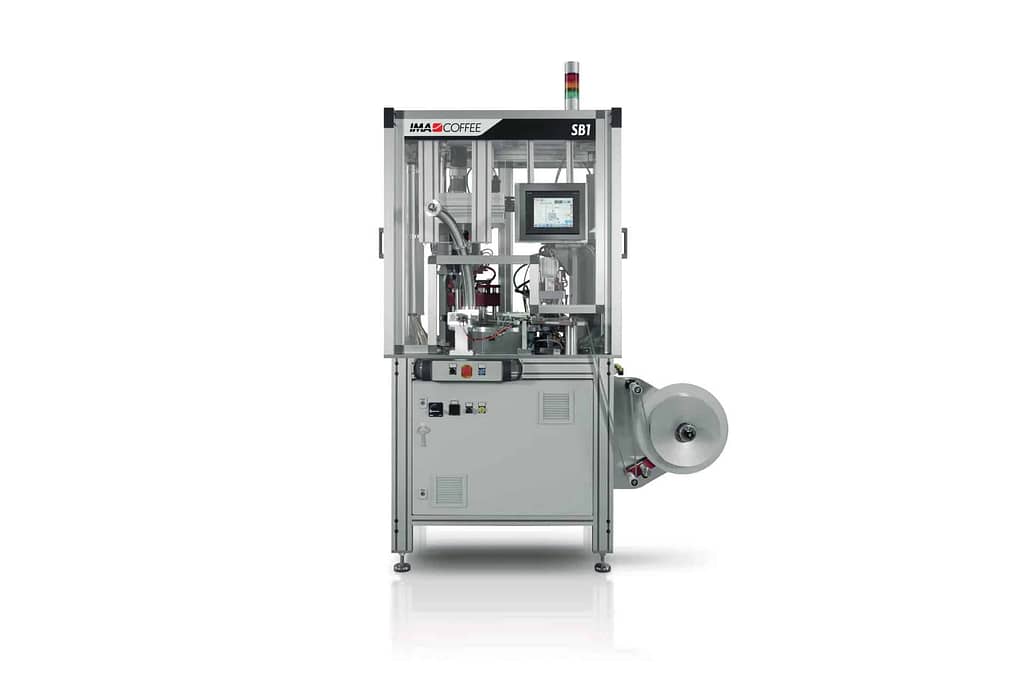[[{“value”:”
Trends in coffee capsule preferences are always on the move, which is why IMA Group has prepared itself to provide solutions for any request.
Italian packaging specialist IMA Coffee has identified Australia as an emerging coffee market, according to Head of Product and Project Management at IMA Coffee, Alessandro Nobili.
“There are many small roasters in Australia who are not yet producing large volumes, but it is still very costly and time consuming to manually handle the roasting, packaging and delivery of their coffee,” says Nobili.
“If they are going to increase production, they need to think about how to automate the packaging process to ensure better efficiency and profitability while maximising time and resources.”
As such, IMA Coffee’s Packaging Division has developed a wide range of packaging solutions, from consultancy and design to production planning and turnkey lines, providing equipment for dosing, filling, sealing, and cartoning.
“Whether Classic or Avant-garde packaging style, IMA Coffee machines can process and handle every type of coffee product. Starting with evergreen products, such as coffee bags, as well as soft and hard pods with a customised envelope configuration,” says Nobili.
“Coffee is extremely sensitive to exposure to air, light, and environmental odours. The fragrance and flavour of coffee is its core value, and IMA’s packaging solutions protect its quality, and extend the shelf life for both beans and ground coffee.”
IMA’s packaging machinery includes hermetic sealing systems, special valve systems for freshness, and resealable systems for consumer convenience, which are configurable for gusseted bags, flat bottom, flat top and stabilo bags, block bottom and quad seal. Every IMA Coffee vertical machine can handle recyclable or compostable packaging materials.
“The coffee sector is evolving fast in terms of types of packaging, and it is important to constantly innovate to meet the increasingly rapidly changing needs and global attention to sustainability, even in Australia,” says Nobili.
Nobili says Australia tends to follow the lead of European trends in the industry, including the rise of single-serve packaging over the last decade. For these product types, IMA Coffee provides low, medium, or high-speed solutions.
“The trend of recent years has seen a strong increase in the consumption of coffee in single-serve pods and capsules,” says Nobili.
“Most of the coffee filter paper pods on the market are of the ESE 44 (Easy Serving Espresso) type, that is, 44-millimetre diameter pods with pre-dosed coffee content varying between seven and eight grams.”
Nobili says coffee capsules, on the other hand, differ from one another in terms of shape, size, and the material they are made of, whether it be aluminium, plastic, or compostable material.
“Coffee capsules are complex structures where the capsule body, lidding, and filter must be precisely designed to deliver a consistently high-quality experience,” he says.
He adds that before the capsules reach consumers, it’s key that these components sustain well during assembly and filling, brewing, and while on the shelf.
“Thanks to a high degree of automation and flexibility, every filler from the IMA Coffee portfolio can handle all types of capsules, no matter what material they are made of,” says Nobili.
IMA Coffee officially presented its low- speed filling technology, the SB1 Lab, at Host Milano 2023, which is able to handle compostable materials.
“The SB1 is an extremely compact rotary machine for the filling and sealing of single capsules, meant for Lab purposes and small productions,” Nobili says.
“Thanks to a very fast size changeover, the SB1 can handle Nespresso compatible capsule in plastic, aluminium, and compostable material.”
Capsules can be fed manually by the operator and individually inserted into the rotary table or stacked into a magazine, before being placed into the rotary table by means of an automatic de-stacking unit. Capsules can be closed at the top with aluminium film, micro perforated, filter paper, triplex coupled, polypropylene, and a compostable lid.
Nobili says IMA Coffee can also offer complete packaging line including secondary and end-of-line solutions. Secondary packaging ensures product protection and integrity when it leaves the production site to reach the final consumers. Different secondary packaging methods are performed according to the primary packaging type.
“The end-of-line solutions allows you to create a safe packaging for coffee packages, facilitating their transport on pallets,” says Nobili. “IMA Coffee’s bundling and wrapping machines, case packers, palletisers and de-palletisers cover a wide range of speeds.”
For more information, visit ima.it/coffee
This article appears in the February 2024 edition of BeanScene. Subscribe HERE.
“}]]


